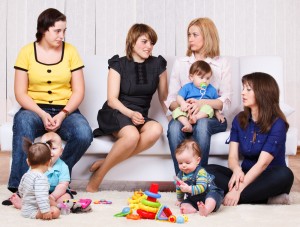
Sleep. The one thing all parents crave. Lack of sleep has been shown to have some serious side-effects for parents- including depression, stress and anxiety. Not to mention the impact this has on relationships, work and overall quality of life (Tietze et al.2014). Children themselves also suffer from poor sleep, with correlations present between sleep and behavioural problems (Simola et al.2014). A quick internet search also makes it clear to see that sleep deprivation has been used as a method of torture and interrogation in past years! (I’m sure many new parents could relate to that!)
For parents with children who have learning disabilities, sleep problems have been found to be particularly common, yet research is limited into the effectiveness of interventions designed to manage this. Many interventions for sleep problems in the ‘typical’ population of children are evident, most traditionally ‘cry it out’- whereby parents leave there child to cry for extended periods until they fall asleep, with the hope they will eventually learn there is no reward for crying and self-settle independently. Another method includes limiting the amount of sleep the child receives in the day, in order to promote the extension of night time slumber.
However, although sleep interventions are the favourable method to improve children’s sleep patterns, many professionals see them as resource draining by being delivered in a 1:1 setting- hence most parents parting with cash for private help.
Stuttard, Beresford, Clarke, Beecham and Curtis (2015) therefore decided to evaluate the effectiveness of a group-based sleep management intervention for parents of children who have a learning disability.

The researchers set out to evaluate the effectiveness of a group-based sleep management intervention for parents
Method
Researchers from the University of York used a before and after design, including a 6 month follow-up, to evaluate the effectiveness of the ‘Managing your Child’s Behavior to Promote Sleep (MCBPBS)’ programme, delivered by learning disability nurses based in a child and adolescent (CAMHS) team in England.
Outcomes under investigation were the children’s sleep problems and the parent’s sense of competence.
MCBSPS:
The intervention programme consisted of four 3 hour sessions delivered over 5 weeks, incorporating both group discussion, homework and didactic teaching. Topics included identifying sleep problems, reinforcing factors, management interventions, environmental considerations and bedtime routines. Simple tools such a picture boards were also introduced as ways of parents communicating positive bedtime messages to their child.
Sample:
Parents were referred to the session by learning disability nurses, school or the health team. Children between 3-18years old could be referred with no more than 8 children represented in each parental group.
In this particular evaluation, 19 mothers and 4 fathers, representing 22 children aged 5-15 years were recruited. Children all had a learning disability, were living at home with their parents and classed themselves as White British- with English as their main language.
Measures:
Pre and post intervention measures were administered in the first and final sessions:
- The Children’s Sleep Habit Questionnaire (CSHQ) (Owens et al.2000) – a 33-item parent-rated scaled measuring sleep disturbance in children
- The Parenting Sense of Competence Scale (PSOC-Johnson and Mash, 1989) – 16-time, parent-rated measure looking at parental satisfaction of their role, and the extent to which they feel they are managing.* Parent’s also identified 3 goals relating to their child’s sleep they would like to achieve by the end of the intervention programme.
Results
Findings showed a significant improvement in sleep outcomes for children with learning disabilities within this group.
Child sleep outcomes:
- Overall scores were lower (i.e. improved) across each evaluation period in comparison to pre-invention scores (57.86)
- Post-intervention (51.79),
- 3 month-follow up (50.29)
- 6 month follow up (52.75).
- At 3 months follow up, this difference in scores was approaching significance (p=0.06) and was significant (p<0.05) for the measure of child night waking.
- The largest effect sizes were typically found at the 3 month follow up.
- Although all scores were improved in comparison to pre-invention scores, there was a large reduction in improvement for child bedtime resistance at the 6 month follow up.
Parental goals
A significant improvement was found in the self-set parental goals from pre-intervention to 6 month follow up (p< 0.001)
Parental competence: Scores for parental competence improved at each time point of evaluation, with parental efficacy improving significantly (p < 0.001)
Conclusion
The findings here are promising for the effectiveness of group inventions for sleep problems. The uptake of these groups was also high with a low dropout rate- suggesting the need for help and support for this group of parents. Many parents reported their child’s sleep problem had also been present for over a year- suggesting the effectiveness of this programme in managing potentially entrenched sleep issues.
Strengths and Limitations
However, findings did suggest that the improvement of the child’s bed-time resistance had dropped after 6 months, highlighting the need for parents to be offered follow up support. The most marked changes initially observed were that of parental competence- it may be that improving parent confidence had a knock on effect in the way they handled sleep and behavioral problems present with their children. Secondly, the opportunity to share and support each other in a group setting may also have added to parents feeling more competent and positive about their parenting practices.
Staff time was the greatest cost involved in this sleep management group. However this would be most cost effective than delivering 1:1 support groups and also allowed the opportunity for fellow peer support between parents.
Finally
It is encouraging to see that the outcomes from this evaluation were positive, with all parents seeing some improvement in their child’s sleep problems over time.
Whilst it may be that the specific sleep interventions were effective, I feel the main message from this study may well be the impact of sharing and supporting each other in a peer-environment.
Group learning and sharing seemed to offer the opportunity to parents who all have children with a learning disability to significantly improve their confidence in their ability to parent, which may have therefore had a positive effect on their ability to implement sleep interventions at home.

Group learning and sharing may have offered opportunities to parents to improve their confidence with positive effects on implementation of sleep interventions at home
Links
Primary paper
A preliminary investigation into the effectiveness of a group-delivered sleep management interventions for parents of children with intellectual disabilities. Stuttard, L., Beresford, B., Clarke, S., Beecham., J and Curtis, J. (2015) Journal of Intellectual Disabilities 1-4, pg 1-13 [PDF]
Other references:
Johnson,C., and Mash., E.J (1989). A measure of parenting satisfaction and efficacy. Journal of Clinical Child Psychology 18: 167-174.
Owens,J.A, Spirito., A. and McGuinn, M (2000). The children’s sleep habits questionnaire (CSHQ):psychometric properties of survey instrument for school-aged children. Sleep 23:1043-1051
Simola,P., Liukkon., K and Pitkaranta., A. et al. (2014) Psychosocial and somatic outcomes of sleep problems in children: a 4 year follow up. Chidl: Cre, Health and Development 40: 60-67
Tietze,.A.L., Zernikow,B., Michel., E., et al (2014) Sleep disturbances in children, adolescents and you adults with severe psychomotor impairment: impact on parental quality of life. Developmental Medicine and Child Neurology, 56 (12)., 1187-1193



Group learning and sharing may improve parents’ confidence of the positive effects of sleep interventions at home http://t.co/7HgKWat6Je
Sleep problems in children with LD. Can a group delivered sleep management intervention help? https://t.co/RFi66mFoR3 via @sharethis
Don’t miss: Sleep problems in children with learning disabilities http://t.co/7HgKWat6Je
Research 2 evaluate effectiveness of sleep management intervention 4 parents http://t.co/k7A2x83i1p #mentaldisability http://t.co/qjm9LJPq6P
Sleep problems in children with learning disabilities. Can a group delivered sleep management intervention help?… http://t.co/P3tSQuHzOK
RT @Mark_Sheldon: Sleep problems in children with learning disabilities. Can a group de… help? http://t.co/joa5gI5MUp @LearningDisElf htt…
Sleep problems in children with learning disabilities. About group delivered sleep management … http://t.co/y02RzV59Vc via @LearningDisElf
A group delivered sleep management intervention for parents of kids with ID @Mental_Elf. Relevant to DS @fayesm1th ?http://t.co/BzmCuTJJ8b
Recent blog about sleep problems in children. Research by @pssru_kent and @SPRUyork. http://t.co/wRTaxeJwA6 @LearningDisElf #teamnosleep